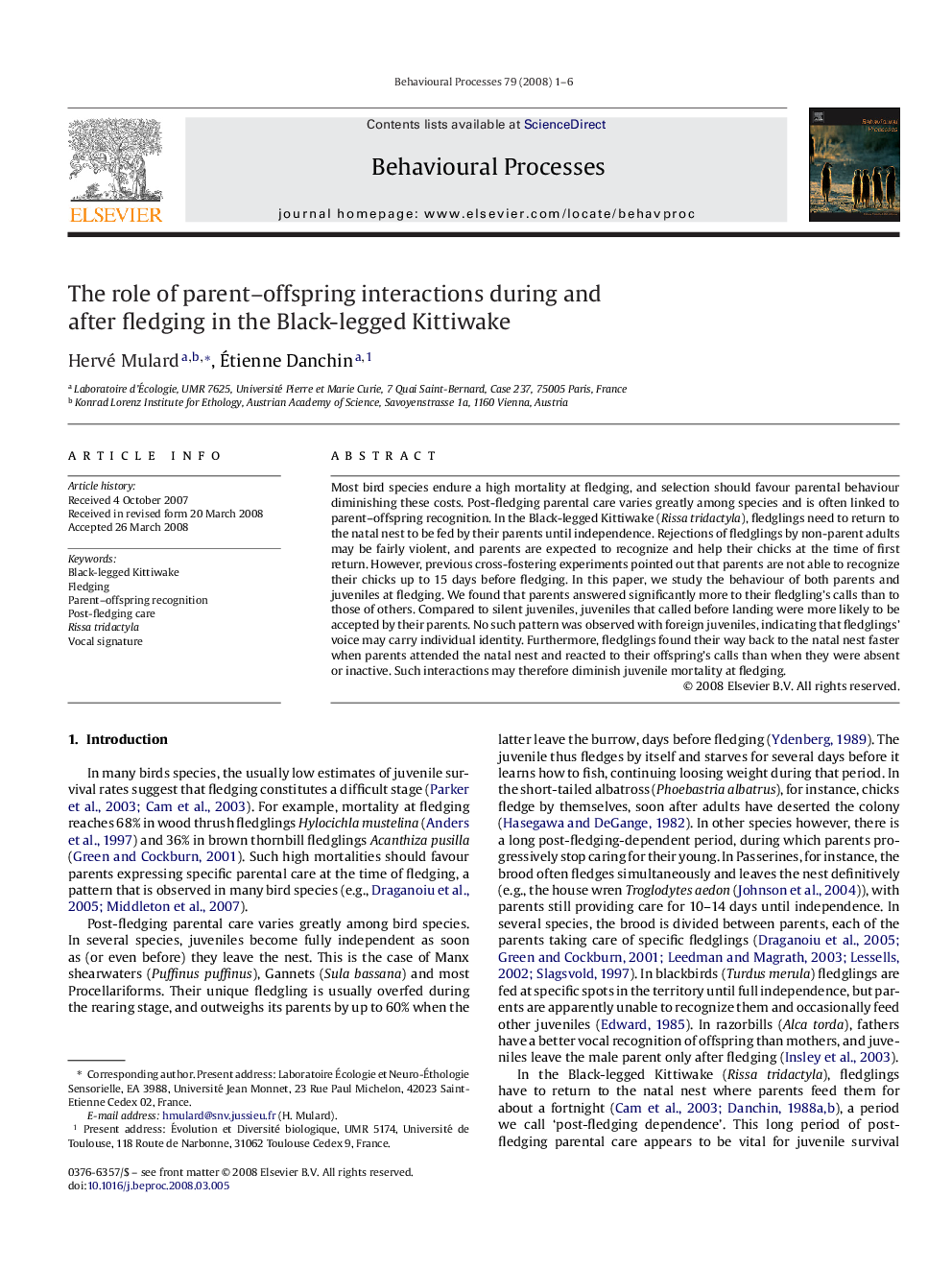| کد مقاله | کد نشریه | سال انتشار | مقاله انگلیسی | نسخه تمام متن |
|---|---|---|---|---|
| 2427733 | 1105976 | 2008 | 6 صفحه PDF | دانلود رایگان |

Most bird species endure a high mortality at fledging, and selection should favour parental behaviour diminishing these costs. Post-fledging parental care varies greatly among species and is often linked to parent–offspring recognition. In the Black-legged Kittiwake (Rissa tridactyla), fledglings need to return to the natal nest to be fed by their parents until independence. Rejections of fledglings by non-parent adults may be fairly violent, and parents are expected to recognize and help their chicks at the time of first return. However, previous cross-fostering experiments pointed out that parents are not able to recognize their chicks up to 15 days before fledging. In this paper, we study the behaviour of both parents and juveniles at fledging. We found that parents answered significantly more to their fledgling's calls than to those of others. Compared to silent juveniles, juveniles that called before landing were more likely to be accepted by their parents. No such pattern was observed with foreign juveniles, indicating that fledglings’ voice may carry individual identity. Furthermore, fledglings found their way back to the natal nest faster when parents attended the natal nest and reacted to their offspring's calls than when they were absent or inactive. Such interactions may therefore diminish juvenile mortality at fledging.
Journal: Behavioural Processes - Volume 79, Issue 1, September 2008, Pages 1–6